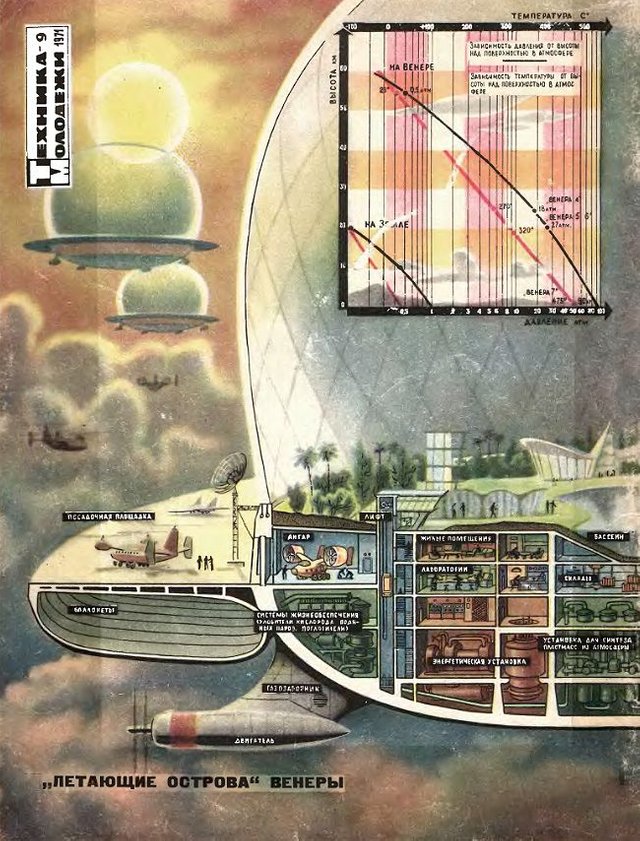The project to colonise venus
The project to colonise venus

When we think of colonising planets, we will think of mars. And although we have extensive plans to colonise it in the near future, we don't think about venus that much. Venus, Although a terrestial planet, it's surface is still very hot at 462°C. But as you ascend through the atmosphere, you will see that it's cooler, at approximately 30-40°C, a reasonable temperature for us humans to make it.
The purpose:
NASA has always thought about colonising the sky of venus during the 1980s, the plan was to send manned aerostats filled with oxygen and hydrogen to the planet to examine the planet.
NASA developed the High Altitude Venus Operational Concept (HAVOC), exploring the possibility of setting up an atmospheric manned mission to the planets atmosphere using aerostat ballons.
Advantages:
°Although venus is very similar to earth, if it weren't for the very extreme temperature, would have potentially made colonising easier
°due to venus being closer to earth than Mars (venus is often called the 'sister planet' of earth) communications and transportation to venus is quite easier than what it would have been elsewhere in the solar system
°venus atmosphere is filled with carbon dioxide and sulfuric acid, if we could somehow filter out all sulfuric acid, then we would have enough carbon dioxide to grow food.
And due to hydrogen and oxygen being lighter than carbon dioxide, we could float 50 km on the sky, which has a temperature of 45°F
Disadvantages:
° The surface is very hot, at 450°C, which is more than enough to melt lead.
° The atmospheric pressure on venus surface is 90 times greater than on earth. Its the same pressure you would feel if you were diving on a 1km deep ocean.
° Due to the absence of water in venus, with the exception of small water pockets on the atmosphere, its will be hard to terraform the whole planet.
Shipping water to venus is not only prohibitedly expensive, but its very time consuming.
Consequences:
° The soviet venera probes, which was supposed to analyse the venusian soil was met with the extreme temperatures of venus, lasting for an hour. This is the only picture it managed to take:

The only exceptions were venera 6-7, which managed to analyse and send data to the soviet scientists, however it was brief and they ended up destroyed by the venusian climate.
Conclusion:
Colonising venus is definitely possible, in the near future. As the surface is hot and that there are clouds containing sulfuric acid. It's gonna be hard to filtrate the acid from the atmosphere.
We also may not colonise venus in the close future, as we have mars to colonise now